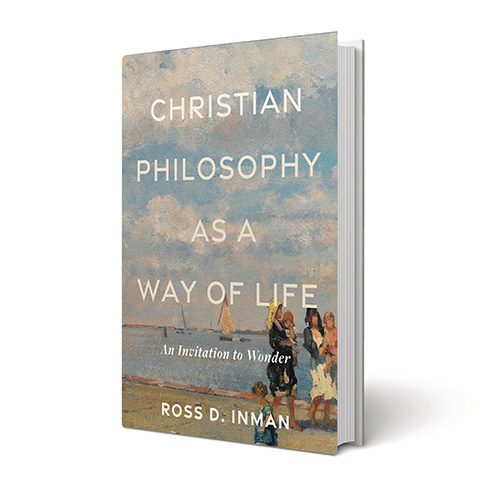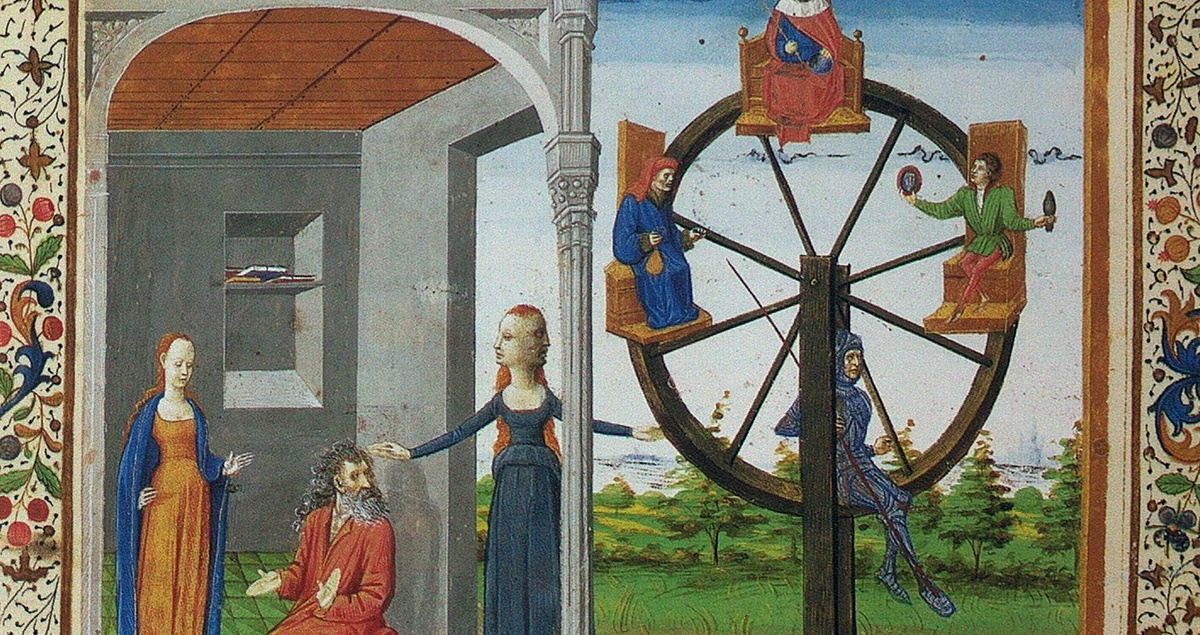Christian theologians and ministers often make the claim that all human beings are theologians—that is, they have a theology; the only question is whether they are good theologians (or have a good theology). Ross Inman, a philosopher at Southeastern Baptist Theological Seminary, makes a similar argument in his Christian Philosophy as a Way of Life. Inman argues that all human beings are designed for philosophical reflection. As Inman says, “We don’t choose our natural appetite to make sense of it all—to philosophize.”
Are we all called to be philosophers and theologians? One philosopher thinks so. But who has the time?

By Ross D. Inman
(Baker, 2023)
Such a position is quite in keeping with Aristotle’s anthropology. Aristotle begins his Metaphysics: “All men by nature desire to know.” Accordingly, Inman’s book is designed to encourage that natural appetite and to give an apologetic for why it ought to be encouraged. The title of Inman’s book may give the impression that it is focused on philosophy, but it might be better described as a defense of the necessity and desirability of what the French Dominican A.G. Sertillanges called the intellectual life. Indeed, although Inman’s work might justly be said to handle areas of epistemology, metaphysics, and ethics, at least at a popular level, its real concern is to defend our human rationality and its usefulness for human flourishing. The good life for Inman is one that self-consciously meditates on, as Inman puts it, the “true meaning and purpose of all created things in Christ.”
To that end (and Inman focuses a lot on teleology), Inman lays out what he contends is the Christian philosophical way of life. First, this requires that a person commit himself to the truth of the Christian faith, which involves identifying what is real, what the good life is, and how one ought to attain such a life. A distinctively Christian philosophical way of life entails that these answers be guided by Holy Scripture.
Second, Inman’s vision of such a life means that a Christian will center his life in this existential roadmap, as he calls it. Living in view of such reality leads Inman to his third condition: practicing various habits that inculcate reality and respond to it. More specifically, the Christian, viewing himself as he really is, will recognize his own finitude—recognizing what Inman calls his existential limitations—and will seek God’s grace to empower him to live a life pleasing to God. Just as a weightlifter gets in the habit of eating healthy and regularly lifting weights, so the Christian living this philosophical life is one who frequently meditates on God and his relationship with God’s world. He will memorize and meditate on God’s word. He will foster Christian friendships explicitly focused on discussing and delighting in what is truly good, true, and beautiful.
C.S. Lewis made it clear that a vocation to learn is in no way a superior calling.
Inman leans heavily on the Christian philosophical tradition. There is a whole section dedicated to a portion of Boethius’ Consolation of Philosophy and numerous references to Augustine as well as a host of other classic Christian philosophers, including Thomas Aquinas and Josef Pieper. At one point, while reading his apologetic for slowing down and dedicating time to think, wonder, and meditate on God and the rest of reality in a world that increasingly finds such time as wasteful, I could not help but think of C.S. Lewis’ famous essay “Learning in Wartime,” which deftly navigates this dilemma. How can you spend time thinking about philosophy while your friends are dying in the trenches? Sure enough, Inman quickly cited this very article. Notably, however, Inman does not strike the exact note Lewis does—and this leads to an area of potential criticism.
Lewis, in his defense of learning during wartime (which could be substituted for any number of problems, as Inman himself notes, such as disease or famine), asserts that such philosophical inquiry is the very means by which we often are able to handle the various difficulties and distresses of life. Here Inman agrees with Lewis, only to ignore his other observation, the less politically safe one. Lewis, unlike Inman, does not see the philosophical life as a calling everyone has. The intellectual life is simultaneously a vocation unique to some while also being no better than any other vocation. Lewis argued that the reason some ought to study literature, philosophy, or chemistry during wartime is because they are simply gifted to do this. Put negatively, Lewis denied that all people should learn during wartime; some should indeed fight for one’s country. Notwithstanding, in the same breath Lewis made it clear that a vocation to learn is in no way a superior calling. Following Luther’s doctrine of the priesthood of all believers, Lewis insisted that: “The work of a Beethoven, and the work of a charwoman, become spiritual on precisely the same condition, that of being offered to God, of being done humbly ‘as to the Lord.’”

In contrast, Inman seems to see the philosophical life—the intellectual life—as a higher calling, but then universalizes it. He repeatedly argues that “if humans are meaning-seeking animals by nature, then philosophical activity should be thought of not as an optional aid to a human life well-lived but rather as an essential ingredient to the distinctly human life well-lived.” If all Inman means is that we cannot help but be human, and thus if all people intend to live a truly human life, then all should prioritize thinking rationally rather than irrationally, delighting in truly aesthetically pleasing things rather than indulging in sensualistic pleasures, then there should be little controversy. But the only solitude a mother of five or a CEO of a Fortune 500 company might be able to find is when he or she prays before going to bed. What we should emphasize, as Lewis and Luther perceived, is that service to God may not be in a life of meditation, solitude, and self-examination, but in a calling as a mother or a CEO. The Greeks had a word for leisure, σχολή, from which we get the English word school. This leisure was often seen as the prerequisite for what Inman wants for the philosophical life. It simply is not the case that everyone’s vocation permits the sort of leisure assumed in Inman’s book.
One might get the false impression that Inman’s work, given its optimistic, egalitarian outlook on living the Christian philosophical life, is not worth taking seriously. This would be a mistake. There are far too many Christians—frankly, far too many human beings—who would do well to use their time in precisely the way Inman lays out. Spending hours upon hours watching Netflix or your favorite sports team is obviously not the good life, the truly satisfying one God has offered in Christ. It is one thing to spend every waking hour of the workweek raising your children in the Lord or building your business for the common good of a given society; it is another altogether to spend much of that time scrolling through programs on your smart TV. Leisure, classically and philosophically understood, was the freedom for education, the freedom for voluntary service, the freedom for wonder. While it is questionable whether all people are provided such leisure by their calling, the simple fact is that most in American society do not have jobs and other obligations that prohibit significant time for leisure—to contemplate, read, pray, and commune with godly friends.
The only solitude a mother of five might be able to find is when she prays before going to bed.
In short, Inman is right to insist that, if given such leisure, it ought not be squandered, but instead redeemed. It is worth observing that, in the Old Testament, God gave one day a week for precisely this aim: “Six days you shall labor and do all your work, but the seventh day is a sabbath to the LORD your God.” Most Christians throughout church history have seen this commandment as, at least, analogous to the Christian Lord’s Day, Sunday. Inman’s call to a focused life of meditation upon God and creation is matched by God’s granting of a day of rest for his people under the New Covenant.
Inman’s defense of the Christian philosophical way of life is a healthy antidote to the various ills of our society, whether expressive individualism, depression, or sensuality, all of which Inman addresses. Quibbles aside, Inman has provided a popular yet thorough Christian apologetic for the life of the mind and an invitation to wonder, as his subtitle puts it. One can only hope that Inman’s little book will be an instrument for eroding the superficiality of much of evangelicalism and, more generally, of our peculiar age.




